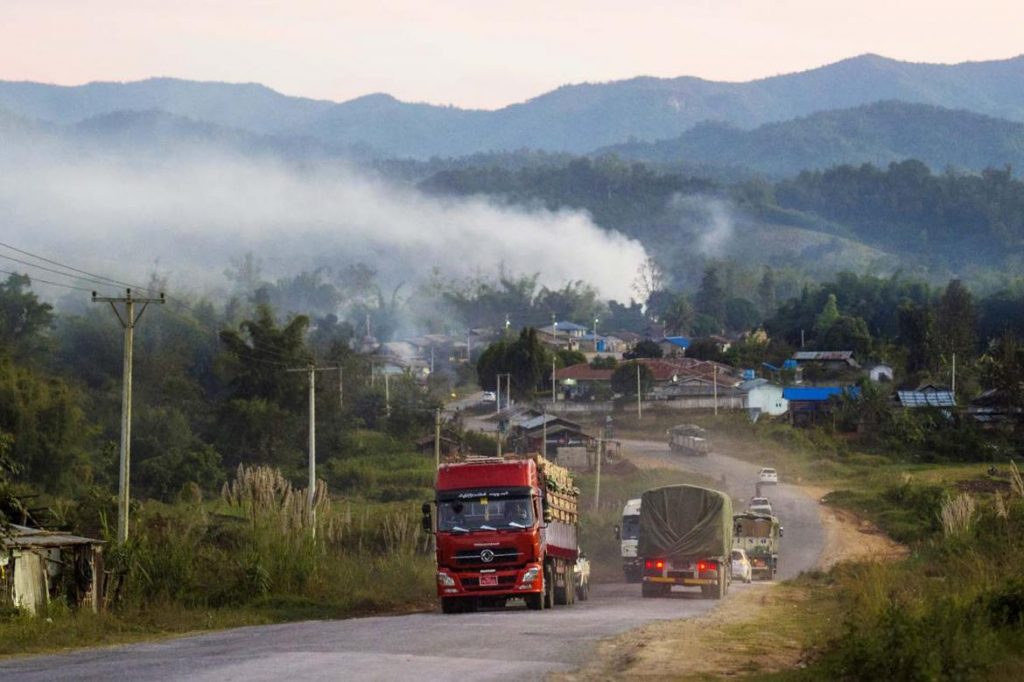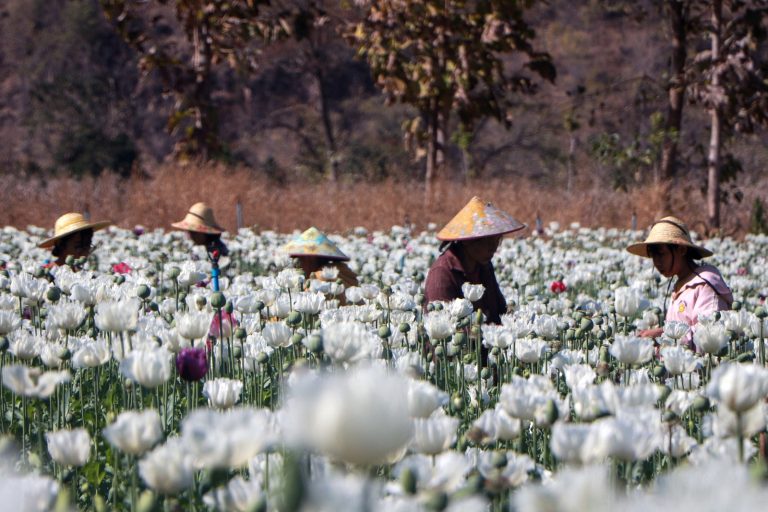The arbitrary and inconsistent application of export rules by Chinese officials is creating havoc for Myanmar merchants involved in border trade.
By SITHU AUNG MYINT | FRONTIER
RESTRICTIONS on border trade with China are a big headache for many Myanmar merchants. China officially bans most rice imports from Myanmar, for example, but its border officials often turn a blind eye to the trade.
In early February though the Chinese authorities launched a crackdown on rice imported across the border and some arrests were made. The crackdown has resulted in tonnes of rice accumulating at the border. Exports of live cattle have also been affected by the enforcement of a ban that was not announced in advance. Thousands of cattle transported to the border for sale to China have had to be sold in Myanmar at heavily reduced prices.
It’s worth asking, how important is border trade with China to Myanmar’s international trade, how many Myanmar traders have been affected by China’s behavior, and what measures are being considered to respond to the border trade bans?
Government figures show that international trade in 2017-18 was more than US$33 billion, of which trade with China accounted for around $12 billion, or 35 percent. Myanmar’s exports to China were worth $5.7 billion and imports were valued at more than $6 billion. Significantly, 87 percent of exports to China, worth nearly $5 billion, is through border trade, with the rest transported by sea. Border trade with China accounts for 33 percent of all Myanmar’s exports.
Support more independent journalism like this. Sign up to be a Frontier member.
Despite the contribution that border trade makes to export earnings, goods worth hundreds of millions of dollars cannot be legally imported to China at present. Only five products – namely, varieties of rice, watermelon, cucumber, plums and mangoes – have permission from China’s General Administration of Quality Inspection, Supervision and Quarantine to be imported legally into China.
Trade in any other product is illegal on the Chinese side. That includes seafood, broken rice, beans and pulses, corn, sesame, livestock, avocado, peanuts, bananas, rubber, sugar and even paint.
However, the Chinese authorities are not consistent. Sometimes they tolerate illegal exports and sometimes they make arrests. Chinese border trade officials can bully at will Myanmar merchants who suffer heavy losses because of the arbitrary enforcement of import bans. The latest crackdown on rice has resulted in stockpiles at the border, and the disruption to exports has sent prices plummeting on the domestic market and reduced farmers’ earnings.
The border trade imbroglio over rice was probably inevitable. Of the 3.5 million tonnes of rice that Myanmar exported to China in the 2017-18 fiscal year, about 2.5 million tonnes was sold through border trade. However, Myanmar’s legal export quota for rice sold to China is only about 100,000 tonnes, and any amount exceeding that is traded illegally on the black market. The quota for Myanmar is a fraction of the 53 million tonnes of rice that China has permitted private companies to import. Myanmar wants its country quota increased to about 400,000 tonnes.
Merchants are urging the government to try to have more products registered for export with China’s AQSIA. There is also a proposal for a barter system to export rice and other goods in exchange for Chinese goods, so if China wants to export $1 million worth of goods, it must accept goods of equal value from Myanmar, including rice and other agricultural commodities.
Traders have also proposed establishing markets in Yangon and Mandalay from where goods could be bought and sold for export to China, which would save on transportation and warehouse charges at the border.
The government needs to help give border trade a boost by pushing to expand the range of products that can be legally exported to China. In the current situation, Myanmar merchants are always the losers. China has many interests in Myanmar and is a big investor in the country and it should try to ensure that border trade is fair and legal.







